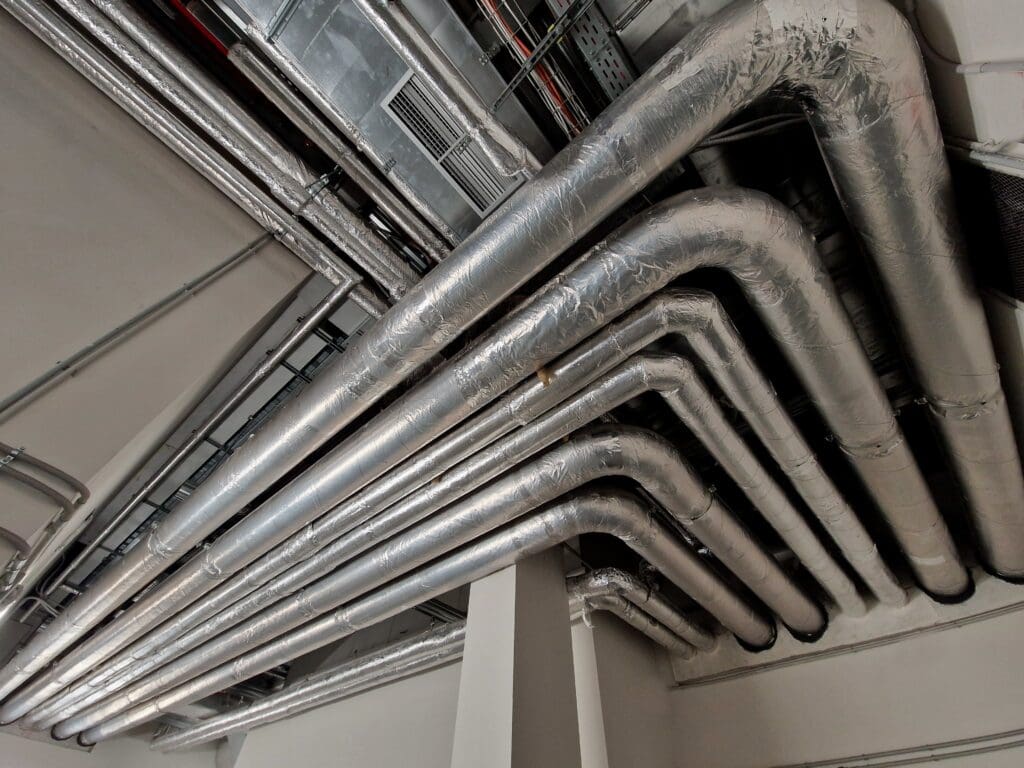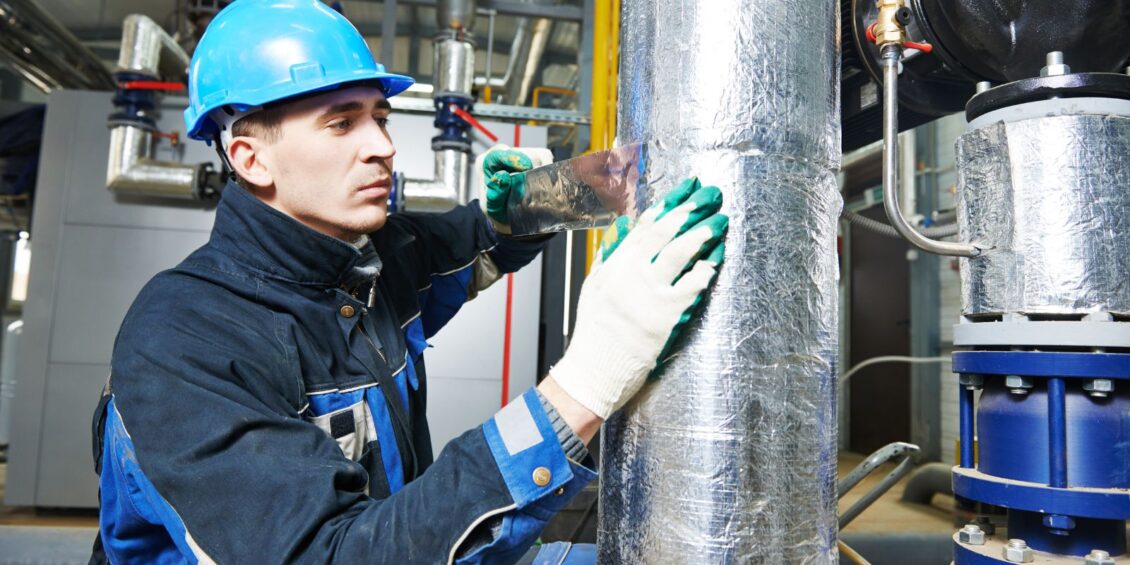Pipework insulation might seem like a minor detail in the grand scheme of business operations. However, this often-overlooked element of building infrastructure offers numerous advantages that extend far beyond its primary purpose.
Surprisingly, some business owners may not realize how much proper insulation can benefit them. If that sounds like you, keep reading to find out why it’s worth paying attention to! Here they are:
1. Cut Down Energy Costs
One common goal for businesses is to conserve energy and keep operating costs as low as possible. And pipework insulation can help achieve that in a big way.
Insulated pipes help maintain the temperature of the fluids or gases travelling through them. That means your heating system doesn’t have to work as hard to keep hot water or steam at the right temp. The result? Lower utility bills and long-term savings that add up over time.
In commercial buildings, insulation can also support HVAC systems by preventing heat loss in warm water pipes and reducing strain on cooling systems. This makes heating and cooling processes more efficient, letting businesses allocate funds elsewhere instead of overspending on energy costs.
2. Boost System Performance
You might not think about it, but efficiency is one of the key factors in business workflow. One solution is pipe insulation. How does it help? It keeps temperatures stable, reducing heat loss and preventing blockages caused by freezing. With these benefits, insulated pipes allow systems to function at their best.
For businesses that use boilers, refrigeration units, or industrial piping networks, efficiency gains can prevent workflow delays and improve productivity. Employees can focus on their jobs without worrying about temperature fluctuations affecting equipment or processes.
Now, here’s the thing: The right type of pipe insulation matters because each has unique properties. For one, phenolic foam insulation offers superior energy efficiency due to its low thermal conductivity. Mineral wool pipework insulation, on the other hand, is a great choice for industrial settings, providing excellent fire resistance and heat protection.


Selecting the right insulation ensures maximum efficiency and reduces maintenance needs.
3. Extend Equipment Lifespan
Excessive temperature fluctuations and condensation buildup can cause damage to pipes over time. Without insulation, pipes become more vulnerable to corrosion, freezing, and thermal stress, which can lead to premature wear and tear. Insulation acts as a protective layer, minimising the impact of environmental factors that degrade materials.
Reducing the risk of rust and pipe failure also helps businesses avoid frequent repairs and replacements. This, in turn, prevents disruptions that could interfere with daily operations.
4. Improve Workplace Safety
Have you considered the hidden dangers of uninsulated pipes? Hot pipes in industrial settings, for example, can cause burns if accidentally touched. Meanwhile, cold pipes may lead to condensation buildup, which is usually the culprit behind slippery floors. This increases the chances of slip-and-fall injuries.
As a business owner, the last thing you want is to jeopardize your employees’ safety. That’s when insulation can be a big help here. It provides a barrier that reduces surface temperatures, meaning pipes are safer to touch, and condensation is prevented from forming.
So, the risk of accidents is now greatly reduced, contributing to a sound work environment.
5. Reduce Noise Levels
Industrial and commercial environments often experience high levels of noise from machinery, ventilation systems, and other operational activities. In many cases, pipework contributes to the noise as well. Pay attention to those rattling, vibrating, or echoing sounds—insufficiently insulated pipes could be the source.
Proper insulation absorbs sound vibrations, helping lower noise levels and creating a more pleasant environment. Offices, hospitals, and hotels benefit the most from this, as a peaceful atmosphere directly enhances occupant comfort and experience.
6. Lower Your Carbon Footprint
Sustainability has become a key focus for businesses aiming to reduce their environmental impact. Pipe insulation plays a significant role in this effort. As mentioned, it reduces energy consumption by improving thermal efficiency. With less energy required to maintain optimal temperatures, businesses can decrease their reliance on fossil fuels. This can lead to lower carbon emissions.
Investing in insulation also aligns with corporate social responsibility (CSR) objectives. Many governments and organisations offer incentives, such as grants, rebates, or tax benefits, for businesses that adopt energy-saving measures. This makes pipe insulation not only an environmentally responsible choice but also a financially beneficial one.
Stay Compliant with Regulations
Many industries must follow strict safety and environmental regulations. Pipe insulation plays a key role in helping businesses meet these requirements by:
- Controlling emissions
- Reducing energy waste
- Preventing hazardous situations such as leaks or overheating
Certain insulation materials are specifically designed to limit the release of harmful substances. Using the right materials ensures compliance with environmental standards. It also reflects a commitment to responsible practices and can enhance your company’s reputation.
Wrapping Up
Most business owners often overlook pipe insulation in their premises. But little did you know that it has a big impact on your business’s efficiency and bottom line.
Take a moment to consider all the potential benefits, and you’ll see that it’s a worthwhile investment. This simple upgrade can make a noticeable difference in how smoothly your operations run.









Leave a Reply
View Comments